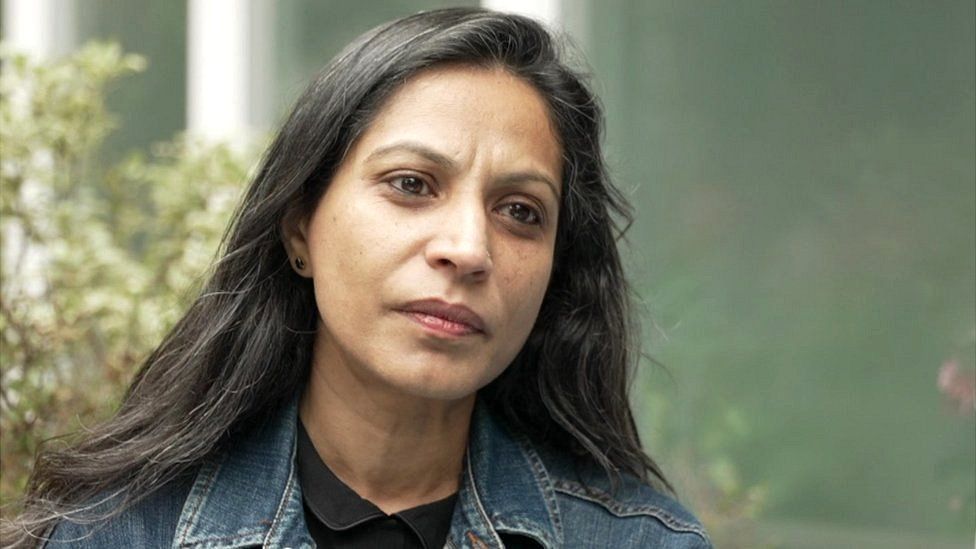Higher interest rates punish low paid, says Bank's Swati Dhingra
- Published
- comments

Dr Swati Dhingra has been a member of the Bank's rate-setting committee since August 2022
Higher interest rates could ultimately hit younger workers and those on lower incomes the hardest, a member of the Bank's rate-setting committee has warned.
Dr Swati Dhingra is one of the Bank of England's nine-strong Monetary Policy Committee.
The Bank last month held interest rates at 5.25%, the highest in 15 years.
These rises have led to higher mortgage and loan repayments for some, but also higher savings rates.
Dr Dhingra joined the Monetary Policy Committee in August 2022.
Since then the committee has voted to raise interest rates nine times to curb inflation. Each time, Dr Dhingra voted against a rise or asked for a smaller one than was ultimately decided on. She cited concerns over the impact on households and businesses.
Speaking exclusively to the BBC, she said: "The economy's already flatlined. And we think only about 20% or 25% of the impact of the interest rate hikes have been fed through to the economy.
"So I think that there's also this worry that that might mean that we're going to have to pay a higher cost than we should be paying."
Interest rates take at least a year, typically, to fully affect the economy, as higher debt repayments force households to limit spending.
Businesses may also cut jobs, with more than 200,000 shed from the UK's labour force in the early summer.
Due to recent data, including a dip in activity or GDP in July, the Bank of England now expects the economy to grow only very modestly over the second half of this year.
Dr Dhingra thinks it may be even worse.
"When you're growing as slowly as we're growing now, the chances of recession or not recession are going to be pretty equally balanced. So we should be prepared for that.
"It's not going to be great times ahead."
Weaker spending and job cuts ultimately triggered by higher rates could hurt younger workers and those on lower wages particularly badly - the same groups who are among the hardest hit by inflation, she said.
"The kinds of price increases that we're seeing, which is energy and food, those will typically impact those people more. And then the interest rates will also typically impact younger, less educated people more. So… eventually when we come out of all of this, we're going to see that possibly inequality is going to rise."
Nevertheless, she says her colleagues did not take the decision to raise rates lightly.
"Nobody is doing this with a smile on their faces. I think it's very hard to see the sort of deprivation when we go to regional visits, and we hear about it.
"There are just horror stories out there."
With the UK experiencing particularly stubborn inflation, the International Monetary Fund has cautioned that interest rates may stay close to current levels for five years. Some Bank officials have also suggested they are unlikely to fall soon.
But there is much uncertainty around. Last month's decision by the Bank not to raise rates again was largely unexpected. As Dr Dhingra points out, if growth falls by much more than it expects from here, a cut may happen sooner.
What happens if I miss a mortgage payment?
If you miss two or more months' repayments you are officially in arrears
Your lender must then treat you fairly by considering any requests about changing how you pay, such as lower repayments for a short time
They might also allow you to extend the term of the mortgage or let you pay just the interest for a certain period
However, any arrangement will be reflected on your credit file, which could affect your ability to borrow money in the future.
Related Topics
- Published15 hours ago
- Published17 April